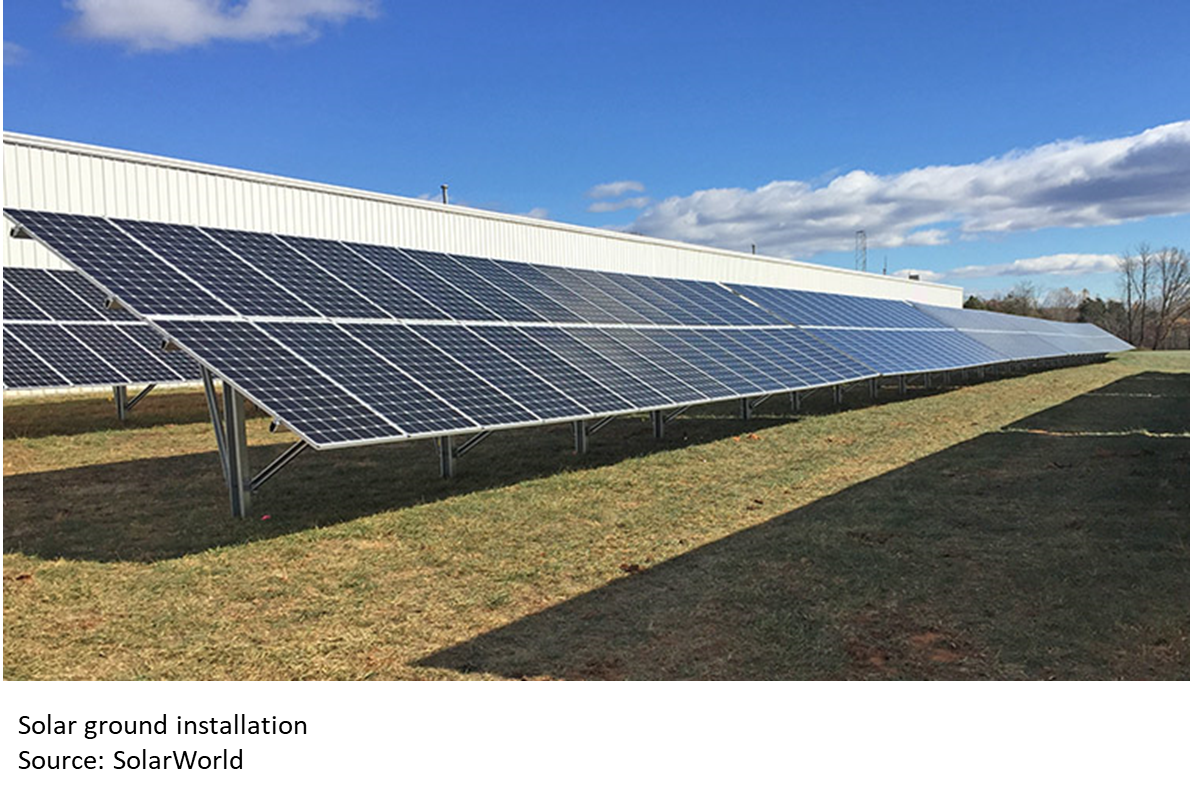Government/Policy

September 7, 2017
SMA Lends Support to Solar Industry Trade Case
Written by Sandy Williams
Solar manufacturers are hoping for a positive determination in a Section 201 trade case that claims U.S. manufacturers are harmed by global overcapacity and the import of cheap solar modules from China. They are now getting support from the steel industry in the form of a letter to the U.S. International Trade Commission from the Steel Manufacturers Association. Washington-based SMA represents EAF steel producers.
The Section 201 safeguard investigation was launched in May seeking new global tariffs and minimum prices on all imports of crystalline silicon photovoltaic (CSPV) cells and modules imported into the U.S. Solar producers Suniva and co-petitioner SolarWorld Americas propose an import tariff of $0.40/W per CSPV cell and a minimum import price of $0.78/W per CSPV module (inclusive of the $0.40/W cell tariff).
The letter from SMA urges the ITC to provide “fair relief” to the solar industry.
SMA knows firsthand the effects that global overcapacity can have on domestic manufacturers.
“We are deeply troubled by the recent surge of imports of solar cells and panels into the United States and the devastating impact these imports have had on the U.S. solar manufacturing industry. This scenario is all too familiar to us, and is reminiscent of the injury that the steel industry faced more than a decade ago. Like with the steel industry, it is abundantly clear that global overcapacity is the driving force behind the surge of solar imports.”
The letter compares the solar industry’s plight to that of the U.S. steel industry, citing subsidization by China to its firms, and the “evolving nature of global supply chains [that] allow these companies to quickly and easily relocate to evade antidumping and circumventing duty orders.”
“Relief from these imports is imperative. For the steel industry, the temporary Section 201 relief provided critical stability at a time of crisis. The U.S. solar industry desperately needs similar breathing room.”
The letter adds that relief to the solar industry will strengthen demand for solar energy overall and have a positive impact on the U.S. steel industry, which provides “hundreds of thousands of tons” of steel for the manufacture of steel racking systems for solar farms.
Juergen Stein, president of SolarWorld Americas, commented, “We are grateful that the Steel Manufacturers Association has tapped its experience in fending off the effects of unfair trade to provide us support in our own struggle. The solar panel manufacturing industry, like steel, is an industry worth fighting for in light of its importance to our economic future.”








